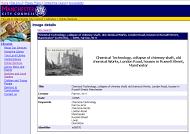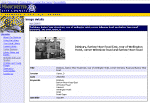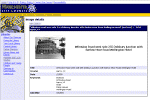We tend to think that guns, robberies and violent crime in Manchester are modern phenomena. But there was lots of it going on in Victorian times too. Even in Didsbury (heaven forbid).
This dramatic report from The Times in 1889, tells how Mr. Allen of the Union Bank was shot at close range, dropped the book he was holding, but remained standing. Replacement clerks were sent for and business at the bank continued as usual! Those were the days…
BANK ROBBERY AND SUICIDE
The Times, Friday, Oct 25, 1889
A branch office of the Union Bank at the village of Didsbury, near Manchester, was robbed yesterday by a man unknown, who fired at the two clerks in charge, seized some handfuls of gold, and ran off. Finding himself unable to escape, however, he shot himself dead after firing at one of his pursuers. The branch office is a corner shop near the Wellington Hotel, and is open only on two days in the Week.
Shortly after opening yesterday morning the stranger entered, and addressing Mr. R. R. Allen, the manager, asked if he might open a deposit account for £50 – or £100. Before he had given a name, and while Mr. Allen was turning aside from the counter to lift a book, the man fired twice from a six-chambered revolver. The first shot wounded Mr. Allen above the heart, but the bullet was turned aside by a rib, and lodged in the other side of the body without penetrating very deeply.
Mr. Allen dropped the book but remained standing. The second shot passed through the middle panel of a partition, behind which was seated an assistant clerk. Mr. H. Cuppleditch, and the bullet lodged in a wall. The assistant had previously looked round the screen and noticed the revolver pointed towards him, but had slipped aside and was not hit.
The stranger then scaled the counter, snatched 78 sovereigns from a drawer, and walked out by the front entrance. The manager and his assistant retreated by another door, Mr. Allen having just strength enough to grope and crawl. No other person was on the premises. The noise at once attracted some passers-by and neighbours, some of whom noticed the stranger walking quickly away.
In a few moments the hue and cry was raised, and then the stranger began to run at great speed. Mr. Allen was carried to the hotel, two surgeons being soon in attendance; and telegrams to the chief office at Manchester brought other clerks to conduct the business of the branch.
The robber tried to hide behind a garden heap in Barlow Moor Road, and fired at a coachman who was approaching him, but the shot missed. Other persons coming in view, the robber dashed through a cottage into some fields near Albert Park, and at first seemed likely to out-distance all pursuit.
The number of his pursuers, however, increased, and he was run out of breath. Looking round he seemed to see that capture was certain, and then he fired his revolver into his mouth. According to one account he shot himself twice. No one seized the man on his falling, for it was seen at once that he was expiring, and he breathed his last almost instantly. A bullet had destroyed the left side of the head and scattered the brains. The men who had so hotly given chase at the risk of their lives bore the corpse back to the Wellington Hotel.
A description of the man gives his age as about 26, height 5ft. 5in or 5ft. 6in.; hair, moustache, and complexion dark; dress, a long blue overcoat, white silk handkerchief, army shirt and trousers. The man’s face has a very careworn look, but the body is well nourished. The stolen money was found in his pocket except a few sovereigns apparently dropped accidently and these are said to have been recovered. A later account says that the man’s trousers are marked with the name ” Dwyer.” His body has many tattoo marks ; a shirt stud is made of two Indian coins ; and some other particulars give rise to the conjecture that he bad been a soldier in India.
Late last night the deceased was identified as James Dwyer by his brother, Frederick Dwyer, who lives in Chorlton-on-Medlock. Mr. Allen was reported at midnight to be making good progress.

* Chorlton on Medlock wasn’t a great place to live in those days. You never knew when a chemical works chimney might fall onto your house without warning.
More photos of this: 1 | 2 | 3 | 4
Also how come these days you never bump into anyone called Mr Cuppleditch?




1 Comment
Looks similar to my local snmimiwg pool in Camberwell during the 80s and 90s, unfortunately now the baths had turned into more modern and public safe pools for the locals shame really, it lost its history :S